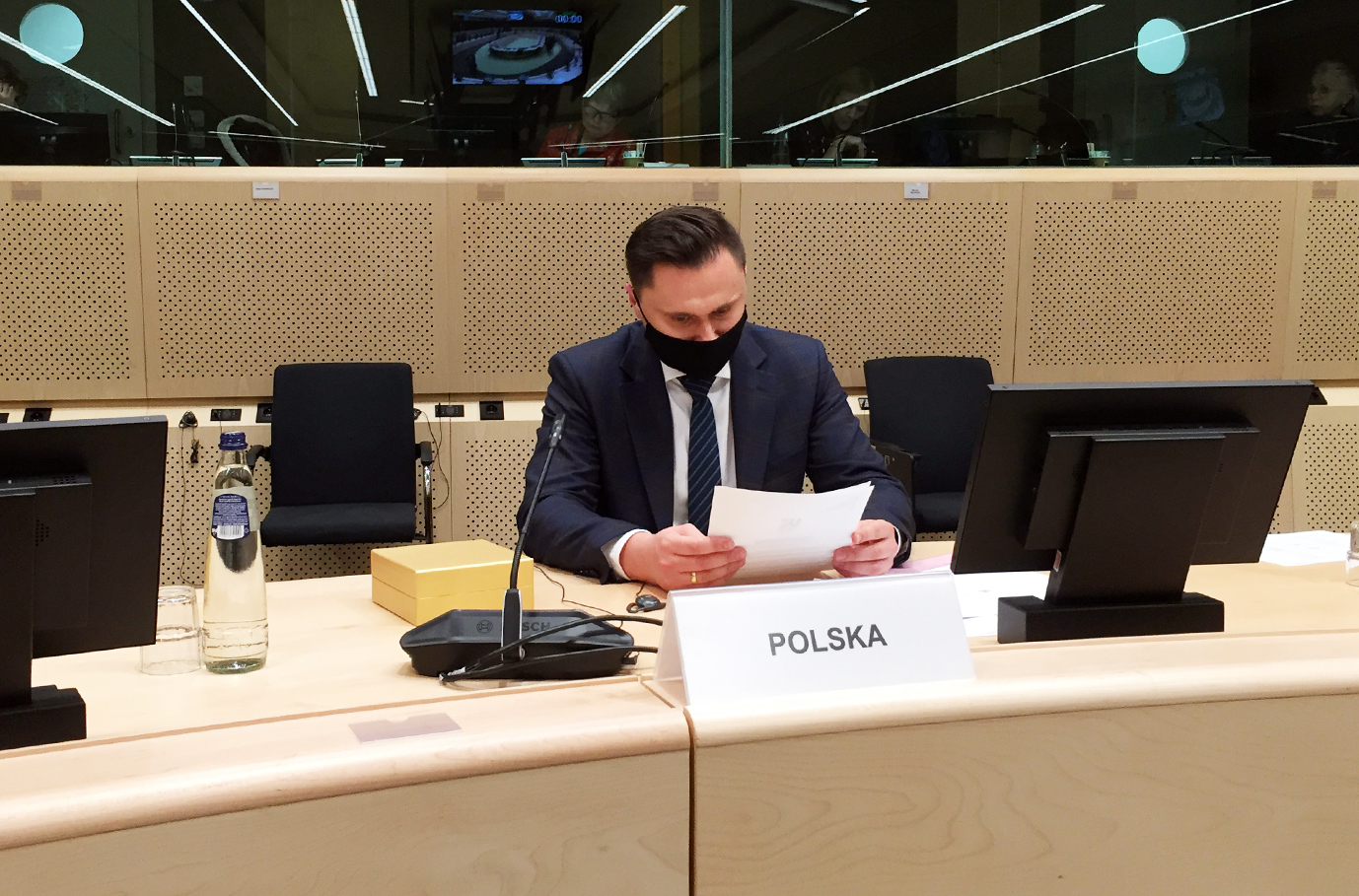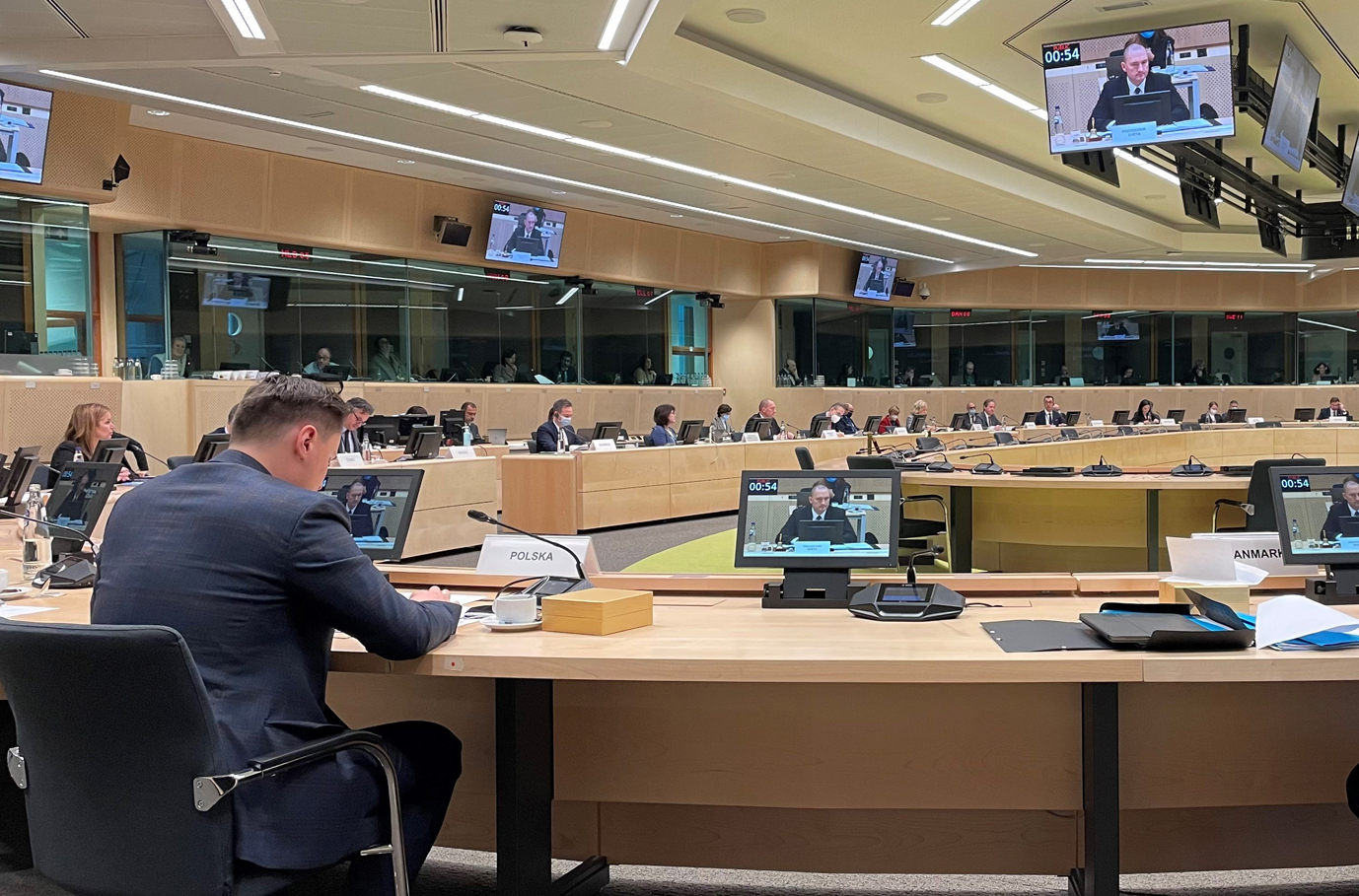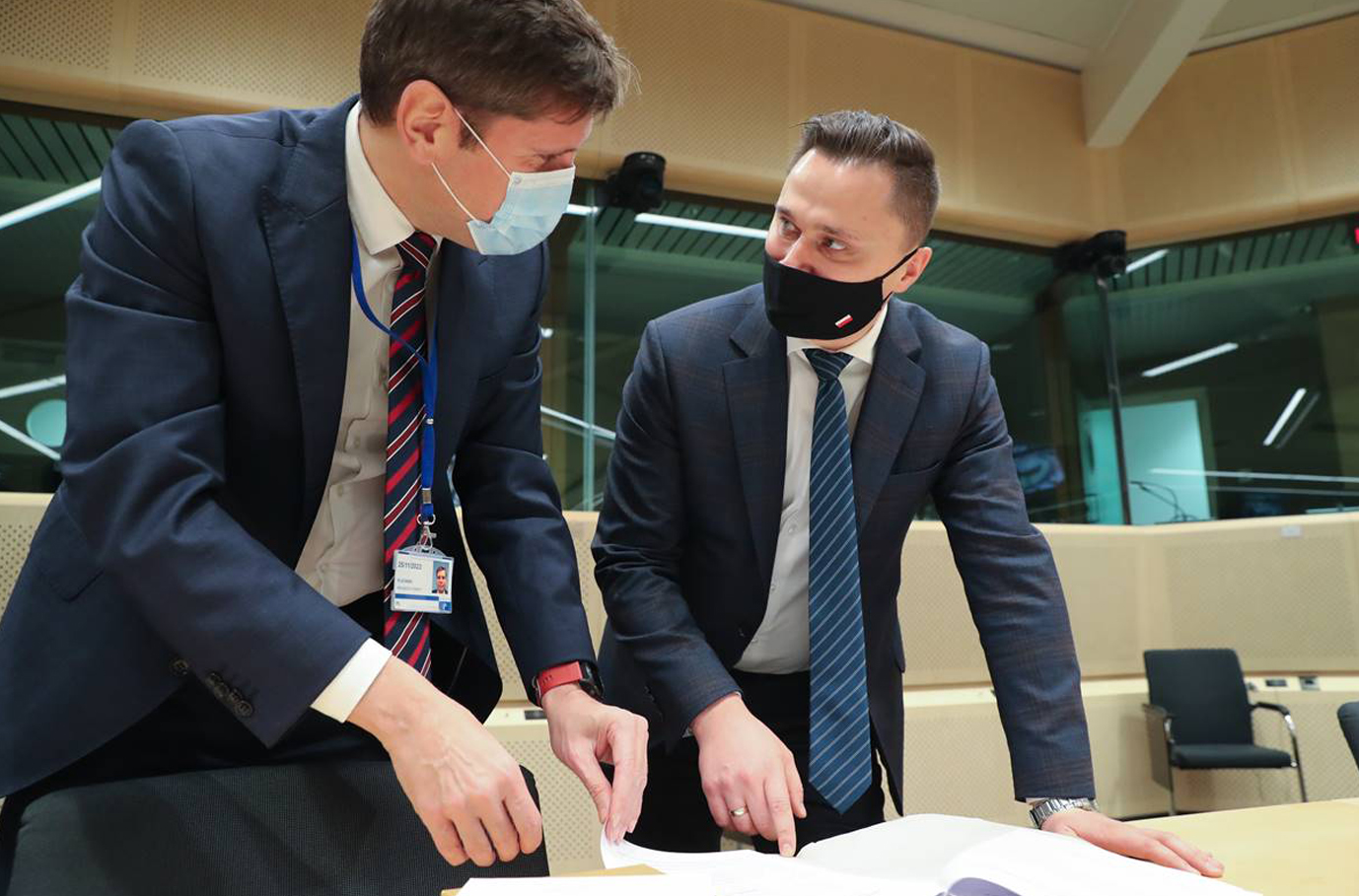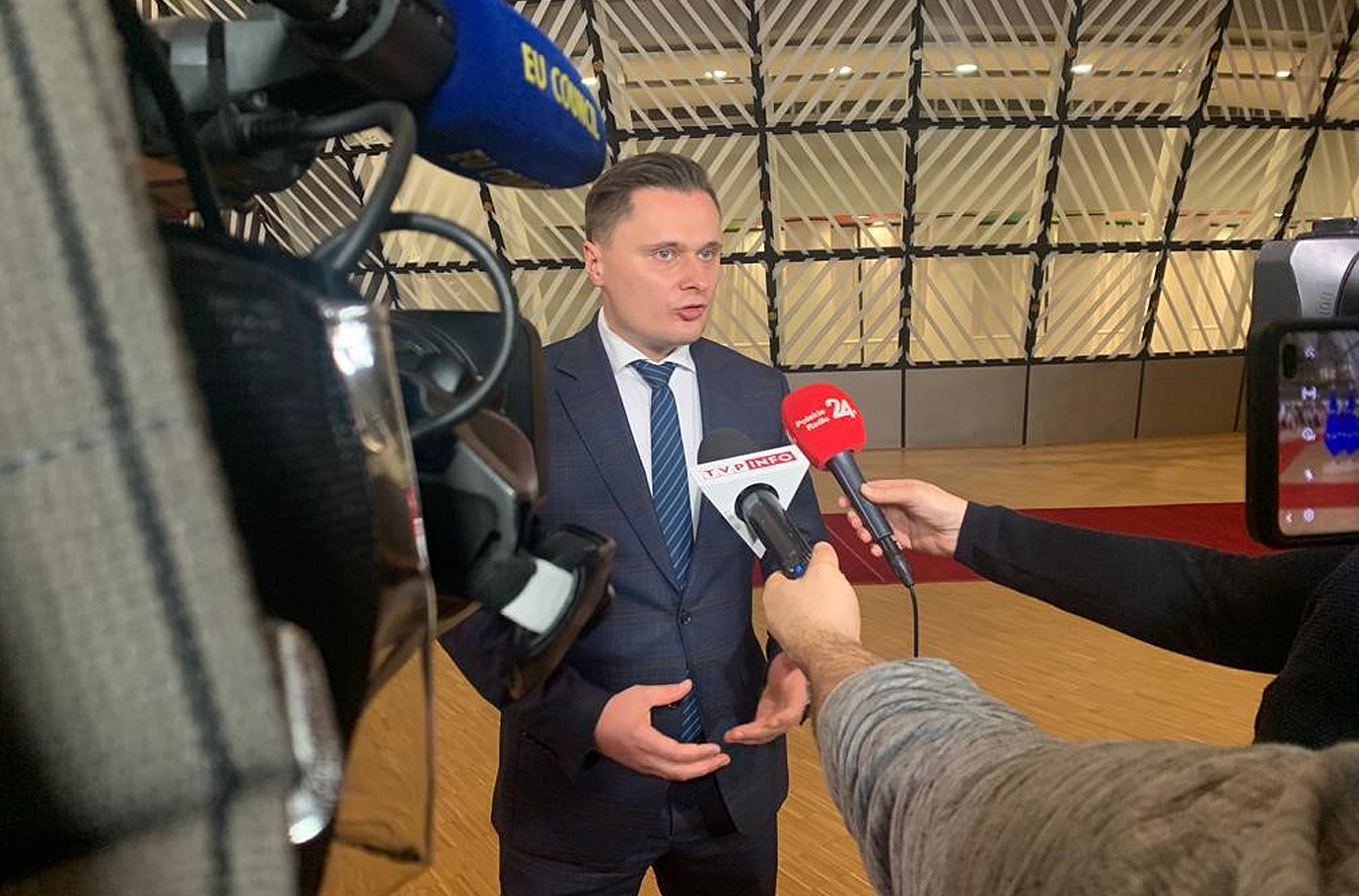Discussions on agriculture and fisheries at AGRIFISH in Brussels
13.12.2021
Undersecretary of State Krzysztof Ciecióra took part in the meeting of the EU Agriculture and Fisheries Council in Brussels. Issues concerning agriculture and fisheries were discussed during the meeting.

Fisheries
The discussion on the first day of the meeting focused on the proposal for a Council Regulation fixing for 2022 the fishing opportunities in Union and non-Union waters. During the debate, Vice-Minister Ciecióra stressed the need to consider Common Fisheries Policy objectives and scientific advice available, taking into account environmental, as well as social and economic aspects. Furthermore, in light of the unfinished negotiations with the United Kingdom, Poland supported establishing provisional fishing quotas for 2022, which will allow the Union fleet to pursue undisrupted fishing activities starting from January 2022.
The delegations also negotiated they could continue fishing for eel under the rules applicable so far, with a three-month closure during the main migration period of these species.
Agriculture
Food security in times of crisis
The second day of the meeting saw the Ministers approve Council conclusions on the contingency plan for ensuring food supply and food security in times of crisis.
The conclusions, endorsed by Poland, cover the most significant aspects of the contingency plan presented by the Commission, which focuses on the preparedness mechanism and aims at improving management in various extreme crisis events or threats. Establishing such a contingency plan is incredibly important for the proper functioning of the whole food supply chain, covering every single link in the chain.
Unfair trading practices in the food supply chain
The Ministers engaged in a policy debate concerning unfair trading practices in the food supply chain. EC recalled the importance of the Directive in strengthening the farmers’ position in the supply chain, and presented the main points of the report on the transposition of the Directive. Ministers highlighted that the provisions are of great importance in strengthening the farmers’ position in the food supply chain; however, it was too early to assess the impact that the Directive had had on the relationships within the supply chain and to decide on the further course of action.
Undersecretary of State Krzysztof Ciecióra informed the Council that Poland had adopted provisions counteracting the unfair use of contractual advantages in the trading of food and agricultural products as early as in December 2016. Since Directive 2019/633 introduced provisions exceeding the scope of the act applicable so far in Poland, a decision has been made to develop a new act, the provisions of which are to come into force on 23 December this year. Poland’s actions are also oriented towards strengthening the farmers’ position as that of producers by eliminating unnecessary costs of intermediaries and allowing them to enter further stages of the food supply chain, i.e., to commence or develop processing activities in the form of agricultural retail, establish businesses in the area of processing agricultural products.
Under this point of the agenda, the Slovak delegation, supported by Bulgaria, Czechia, Greece, Hungary, Poland, Portugal, and Spain presented information titled: Transforming the food supply chain towards sustainability – lessons learned from the EU Code of Conduct. The information pointed to the unequal burdens in transforming the supply chain – the many new obligations on farmers as part of the Farm to Fork Strategy compared to voluntary measures for other participants of the food supply chain as part of the EU Code of Conduct on Responsible Food Business and Marketing Practices published in July 2021. In endorsing Slovakia’s initiative, many Member States pointed out that EC needs to reanalyse the burden structure and ensure a fairer distribution onto all chain participants. Concerns were also raised as to the loss of competitiveness of EU production compared to imported products.
Critical situation in the pig meat sector
EU’s agriculture ministers once more discussed the critical situation in the EU’s pig sector, based on the information from Czechia supported by Poland, among other states. In the overview of the pig meat market, the Czech delegation stressed that the situation is critical due to, on the one hand, low pig meat prices, on the other hand, high production costs. This puts many farms at the risk of collapse. Poland noted that with the prolonged difficult situation on the pig meat market, more and more farms, mostly small and medium farms, would cease production. In this critical situation, the Ministers suggested that the European Commission introduce exceptional support measures for pig producers in line with provisions governing common market organisation.
The Commission noted that the stabilisation of prices in the past few weeks and rising piglet prices are a sign of improvement. It underlined that this was not a good moment to intervene under common market organisation provisions, especially since the time before Christmas is good for demand. The Commission declared that if the positive signs and trends failed to come true, it would reanalyse the situation in January 2022 and seriously consider taking action.
Problem of growing agricultural input prices
Once again, the Ministers discussed the problem of growing input prices, including those of fertilisers and feed. Spain’s proposal, supported by many states, including Poland, draws the Commission’s attention to the fact that the rate at which agricultural input prices grow, often half times higher than that of agricultural products, negatively affects the profitability of production in farms.
Almost all Member States took the floor in the discussion, pointing out the difficulties resulting from high input prices, especially for animal producers. EC assured them that it was monitoring the situation, especially with respect to fertilisers.




